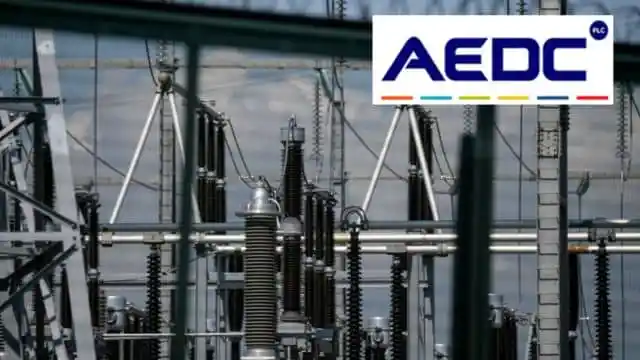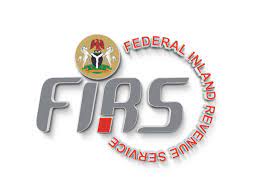economy
Firm Boosts Access to Dairy Nutrition with Affordable Peak Mini

From Anthony Nwachukwu, Lagos
Dairy brand, Peak Milk has boosted Nigerians’ accessibility to its quality dairy nutrition range with the introduction of the budget-friendly Peak Mini – a smaller, more affordable pack from its signature Peak Evaporated Milk.
Unveiling the dairy brand, the producer, FrieslandCampina WAMCO Nigeria PLC, restated its commitment to providing high-quality dairy products to consumers as it has been doing in over 70 years in Nigeria.
According to WAMCO, the Peak Mini evaporated milk will provide affordable breakfast within the reach of every home with a budget-friendly nutritional breakfast with the same rich, creamy taste and high-quality.
Senior Brand Manager of Peak Milk, Moninnuola Kassim, stated that with Peak Mini, the company is “directly addressing the challenges many Nigerians face daily, one of which is affordability.
“Our smaller, affordable Peak Mini packs ensure that quality dairy nutrition remains within reach for everyone, regardless of income level.”
According to her, “many consumers have had to compromise on nutrition when considering costs, but with Peak Mini, that trade-off is no longer necessary.
The brand, Kassim said, maintains the same premium taste and nutritional benefits in a convenient and cost-effective package, and whether for breakfast cereals, tea or other meals, this innovation ensures that consumers no longer need to choose between quality and affordability.
According to her, FrieslandCampina WAMCO believes that every Nigerian deserves access to quality, nutritious dairy products,” and “Peak Mini is another step towards fulfilling that mission by providing a practical solution that meets the needs of everyday consumers.”
| ReplyReply allForwardAdd reaction |
economy
AEDC Restates Commitment to Pay all Legitimate Allowances to Staff

The Abuja Electricity Distribution Company (AEDC) says it is committed to settling all legitimate allowances owed staff.
The company’s Managing Director, Mr Chijioke Okwuokenye, said this in a statement in Abuja on Thursday following a threat from the workers to shutdown the operations of the establishment.
The threat notice was given by the two labour unions in electricity supply industry, the National Union of Electricity Employees (NUEE) and the Senior Staff Association of Electricity and Allied Companies (SSAEAC).
The unions had respectively resolved to resume their earlier suspended strike over non-implementation of agreements reached with the AEDC since Nov.
5 and Nov 7, 2024.The unions threatened to resume the suspended action over non-remittance of pension deductions for 16 months, non-implementation of the national minimum wage.
They also cited non-promotion and the continuous stagnation of members of staff for over 10 years, non-confirmation of staff on acting appointment, non-regularisation and proper placement of appointments amongst others.
Okwuokenye said that management had been engaging constructively with the union representatives regarding the notice of industrial action.
”We are committed to ensuring that all legitimate allowances owed to staff are settled promptly, subject to our financial processes and regulatory compliance.
”We have already initiated dialogue with the union leadership to address their concerns transparently and to seek a mutually agreeable resolution.
”We are confident that, through continued negotiation and open communication, we will find a way to avert any disruption to our operations and to uphold our commitment to the welfare of our employees, ”he said.
According to him, employees of AEDC are at the heart of all the company does, and their well-being and welfare are paramount to management.(NAN)
BUSINESS
NSIA Net Assets Hit N4.35trn in 2024
By Tony Obiechina Abuja
The Nigeria Sovereign Investment Authority (NSIA) yesterday disclosed that its net assets grew from N156bn in 2013 to N4.35 trillion in 2024.
Similarly, the Authority has remained profitable for 12 consecutive years, leading to cumulative retained earnings of N3.
74 trillion in 2024.Managing Director and Chief Executive Officer of NSIA, Aminu Umar- Sadiq made these disclosures at a media engagement in Abuja, highlighting its audited financial results for the 2024 fiscal year.
According to him, the results underscored the resilience of the authority’s investment strategy and the strength of its earnings, driven by a well-diversified revenue base and robust risk management practices, despite a challenging global macroeconomic and geopolitical environment.
Total operating profits, excluding share of profits from associates and Joint Venture (JV) entities, increased from N1.17 trillion in 2023 to N1.86 trillion in 2024, driven by the strong performance of
NSIA’s diversified investment portfolio, infrastructure assets, gains from foreign exchange movements, and derivative valuations.
In addition, Total Comprehensive Income (TCI), inclusive of share of profits from associates and JV entities, reached N1.89 trillion in 2024, reflecting a 59 per cent increase from N1.18 trillion in 2023.
Core TCI (excluding foreign exchange and derivative valuation gains) rose by 148 per cent to N407.9 billion in 2024 compared to N164.7 billion in 2023, supported by robust returns on financial assets measured at fair value through profit and loss, including collateralised securities, private equity, hedge funds, and Exchange-Traded Funds (ETFs).
Umar-Sadiq said the authority’s outstanding financial performance in 2024 reflected the “strength of our strategic vision, disciplined execution and unwavering commitment to sustainable socio-economic advancement.”
He said, “By leveraging innovation, strategic partnerships and sound risk management, we have not only delivered strong returns but also created value for our stakeholders
“As we move forward, we remain focused on driving economic transformation, expanding opportunities, scaling transformative impact and ensuring long-term prosperity for current and future generations of Nigerians.”
The CEO reaffirmed the authority’s commitment to managing the country’s SWF, and delivering the mandates enshrined in the NSIA Act.
He said NSIA remained poised to continually create long-term value for its stakeholders by delivering excellent risk-adjusted financial results, developing a healthy and well-diversified portfolio of assets and large-scale infrastructure projects, and enhancing the desired social outcomes.
He noted that NSIA was committed to its mandate of prudent management and investment of Nigeria’s sovereign wealth.
“In adherence to its Establishment Act, NSIA prioritises transparency, disclosure, and effective communication with all stakeholders and counterparties,” he said.
He pointed out that in the year under review, a new board, led by Olusegun Ogunsanya as Chairman, was appointed by President Bola Tinubu, in accordance with the provisions of the NSIA Act.
The new board will provide strategic direction and oversight, in addition to playing a pivotal role in critical decision making.
He remarked that under the guidance of the Board, the Authority will retain focus on its primary mandate of creating shared value for all stakeholders based on its continued adoption of corporate governance practices.
“NSIA prides itself an investment institution of the federation established to manage funds in excess of budgeted oil revenues and its mission is to play a pivotal role in driving sustained economic development for the benefit of all Nigerians through building a savings base for the Nigerian people, enhancing the development of the county’s infrastructure, and providing stabilisation support in times of economic misadventure,” he added.
Economy
FIRS Chairman seeks Review of Tax Incentive Schemes.

By Tony Obiechina Abuja.
The Executive Chairman of the Federal Inland Revenue Service (FIRS) Zacch Adedeji, on Tuesday, revealed that revenue lost to tax expenditure remains difficult to quantify due to poor data availability across relevant government agencies.
According to him, tax incentives are not properly weighed against their real economic benefits, making it difficult to know their true cost which eventually creates room for unverified tax expenditure figures in different quarters.
Adedeji made the revelation while delivering a keynote address at the 2025 Tax Expenditure Workshop organized by the Tax Expenditure Management Unit of the FIRS Corporate Services Group in Abuja.
The event, themed “Tax Expenditure and Its Effect on Government Revenue,” was aimed at examining whether tax incentives are genuinely driving economic growth or quietly draining the nation’s revenue base.
The FIRS chairman, who was represented by the Coordinating Director, Corporate Services Group, Bolaji Akintola, said the policy directive was designed to support critical sectors such as industrialisation, employment creation, innovation, infrastructure, and foreign exchange earnings.
However, the lack of proper data management and impact assessment has made it difficult to evaluate the true cost and benefit of these incentives.
He said, “Tax expenditures have serious direct and indirect impacts on the citizenry, especially based on equity and fairness. We all know that the Fiscal Responsibility Act of 2007 mandates that Agencies of government provide an evaluation of the budgetary and financial implications of any proposed tax expenditure each year.
“Tax expenditures, like direct expenditures, affect the government budget as it is an expenditure that is spent indirectly by the government through tax exemption, tax deduction, tax offset, concessional tax rate or deferral of tax liability.
” It is granted for several reasons, among which are to encourage industrialisation, creation of employment, provision of infrastructure, foreign exchange earnings, positive balance of trade, encouragement of innovations and reaching the underserved locations.
“It has been argued that the government is losing revenue through tax incentives, which have been difficult to quantify due to limited data availability. In granting tax incentives by the government, there are expected benefits to be derived from the entities that enjoy these incentives, such that if adequately quantified when analyzing the Tax Expenditures in terms of socio-economic impact will show that the actual financial cost to government vis – a viz benefits will be minimized, and a positive developmental curve or growth curve will be observed.
“It is the lack of this adequate monitoring tool on impact assessment that gives room to the ‘IFs’ and ‘Buts’ which create room for these unverified tax expenditure figures in different quarters.”
Adedeji further lamented that many stakeholders operate in silos, with no central coordinating framework for tax incentives, and highlighted the absence of a dedicated tax committee in the National Assembly.
Other challenges he identified include conflicting incentive schemes, Base Erosion and Profit Shifting, and politically motivated tax policies.
He noted that the Fiscal Responsibility Act 2007, which mandates all government agencies to evaluate the financial implications of proposed tax expenditures annually, is often poorly implemented.
To resolve this, the FIRS boss disclosed that the Service has empowered its Tax Expenditure Management Unit to evaluate and monitor all tax incentives, adding that the unit is now supported by the integrated digital tax administration system (TaxPro Max).
“While some abuses have been noticed in tax expenditure management, there is also the question about the continued relevance of some of the Tax Incentives. It is, therefore, important that innovative strategies are adopted to achieve efficiency in tax expenditure management,” he added.
Adedeji called for amendments to the various laws underpinning tax expenditures, saying this has become necessary to prevent abuse and ensure the system is flexible enough to keep pace with global reforms, such as the OECD’s Pillar II global minimum tax rule.
He advocated for a centralized framework to regulate and monitor tax incentives, stressing the need for consistent cost-benefit analyses to determine which incentives should be sustained.
This, he said, would also help eliminate duplication and overlap among Ministries, Departments and Agencies.
Adedeji noted that while the FIRS is currently focused on extracting and computing tax expenditure data, the responsibility for assessing their impact still lies largely with administering agencies such as the Nigerian Investment Promotion Commission, the Nigeria Export Processing Zones Authority, and the Oil and Gas Free Zones Authority.
He also called for stronger inter-agency collaboration and emphasised the need to regularly assess the continued relevance and impact of tax incentives on national development.
“We believe that data is life in tax expenditure reporting. That is why the Service will continue to collaborate with the ECOWAS, IMF, World Bank, and the Addis Tax Initiatives to build a robust tax expenditure value chain,” he stated.
Speaking further, Adedeji revealed that the FIRS is currently contributing over 60 per cent of monthly inflows to the Federation Account, a result of several reform initiatives.
Despite these milestones, he said the FIRS is challenged by increasing demand for greater tax revenue amidst declining direct contributions by some Ministries, Departments and Agencies.
He said, “The FIRS is currently challenged by the ever-increasing demand for greater tax revenue collection by the government at all levels, especially in the face of dwindling direct revenue contributions by some MDAs. Under this current dispensation, the Service is contributing an average of over 60 per cent monthly to the Federation Account.
“This is due to several proactive and reformative steps adopted by the Service. In 2024, we recorded a collection figure of N21.6tn, and in the current year, we are targeting a revenue collection of N25.2tn.”
| ReplyReply allForwardAdd reaction |



















